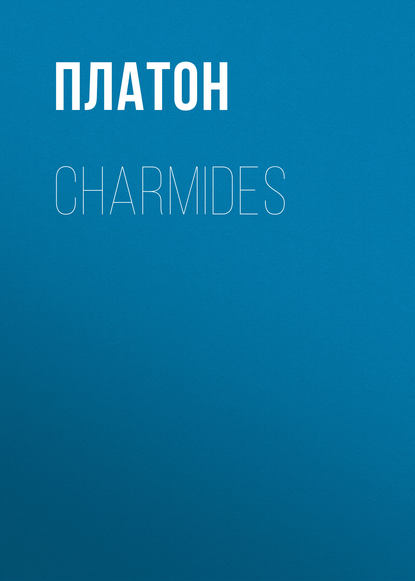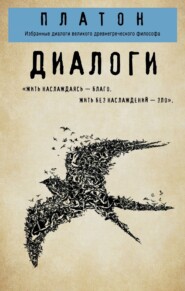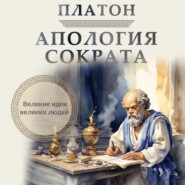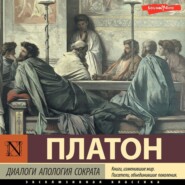По всем вопросам обращайтесь на: info@litportal.ru
(©) 2003-2024.
✖
Charmides
Настройки чтения
Размер шрифта
Высота строк
Поля
True.
And, on the other hand, the physician knows nothing of science, for this has been assumed to be the province of wisdom.
True.
And further, since medicine is science, we must infer that he does not know anything of medicine.
Exactly.
Then the wise man may indeed know that the physician has some kind of science or knowledge; but when he wants to discover the nature of this he will ask, What is the subject-matter? For the several sciences are distinguished not by the mere fact that they are sciences, but by the nature of their subjects. Is not that true?
Quite true.
And medicine is distinguished from other sciences as having the subject-matter of health and disease?
Yes.
And he who would enquire into the nature of medicine must pursue the enquiry into health and disease, and not into what is extraneous?
True.
And he who judges rightly will judge of the physician as a physician in what relates to these?
He will.
He will consider whether what he says is true, and whether what he does is right, in relation to health and disease?
He will.
But can any one attain the knowledge of either unless he have a knowledge of medicine?
He cannot.
No one at all, it would seem, except the physician can have this knowledge; and therefore not the wise man; he would have to be a physician as well as a wise man.
Very true.
Then, assuredly, wisdom or temperance, if only a science of science, and of the absence of science or knowledge, will not be able to distinguish the physician who knows from one who does not know but pretends or thinks that he knows, or any other professor of anything at all; like any other artist, he will only know his fellow in art or wisdom, and no one else.
That is evident, he said.
But then what profit, Critias, I said, is there any longer in wisdom or temperance which yet remains, if this is wisdom? If, indeed, as we were supposing at first, the wise man had been able to distinguish what he knew and did not know, and that he knew the one and did not know the other, and to recognize a similar faculty of discernment in others, there would certainly have been a great advantage in being wise; for then we should never have made a mistake, but have passed through life the unerring guides of ourselves and of those who are under us; and we should not have attempted to do what we did not know, but we should have found out those who knew, and have handed the business over to them and trusted in them; nor should we have allowed those who were under us to do anything which they were not likely to do well; and they would be likely to do well just that of which they had knowledge; and the house or state which was ordered or administered under the guidance of wisdom, and everything else of which wisdom was the lord, would have been well ordered; for truth guiding, and error having been eliminated, in all their doings, men would have done well, and would have been happy. Was not this, Critias, what we spoke of as the great advantage of wisdom – to know what is known and what is unknown to us?
Very true, he said.
And now you perceive, I said, that no such science is to be found anywhere.
I perceive, he said.
May we assume then, I said, that wisdom, viewed in this new light merely as a knowledge of knowledge and ignorance, has this advantage: – that he who possesses such knowledge will more easily learn anything which he learns; and that everything will be clearer to him, because, in addition to the knowledge of individuals, he sees the science, and this also will better enable him to test the knowledge which others have of what he knows himself; whereas the enquirer who is without this knowledge may be supposed to have a feebler and weaker insight? Are not these, my friend, the real advantages which are to be gained from wisdom? And are not we looking and seeking after something more than is to be found in her?
That is very likely, he said.
That is very likely, I said; and very likely, too, we have been enquiring to no purpose; as I am led to infer, because I observe that if this is wisdom, some strange consequences would follow. Let us, if you please, assume the possibility of this science of sciences, and further admit and allow, as was originally suggested, that wisdom is the knowledge of what we know and do not know. Assuming all this, still, upon further consideration, I am doubtful, Critias, whether wisdom, such as this, would do us much good. For we were wrong, I think, in supposing, as we were saying just now, that such wisdom ordering the government of house or state would be a great benefit.
How so? he said.
Why, I said, we were far too ready to admit the great benefits which mankind would obtain from their severally doing the things which they knew, and committing the things of which they are ignorant to those who were better acquainted with them.
Were we not right in making that admission?
I think not.
How very strange, Socrates!
By the dog of Egypt, I said, there I agree with you; and I was thinking as much just now when I said that strange consequences would follow, and that I was afraid we were on the wrong track; for however ready we may be to admit that this is wisdom, I certainly cannot make out what good this sort of thing does to us.
What do you mean? he said; I wish that you could make me understand what you mean.
I dare say that what I am saying is nonsense, I replied; and yet if a man has any feeling of what is due to himself, he cannot let the thought which comes into his mind pass away unheeded and unexamined.
I like that, he said.
Hear, then, I said, my own dream; whether coming through the horn or the ivory gate, I cannot tell. The dream is this: Let us suppose that wisdom is such as we are now defining, and that she has absolute sway over us; then each action will be done according to the arts or sciences, and no one professing to be a pilot when he is not, or any physician or general, or any one else pretending to know matters of which he is ignorant, will deceive or elude us; our health will be improved; our safety at sea, and also in battle, will be assured; our coats and shoes, and all other instruments and implements will be skilfully made, because the workmen will be good and true. Aye, and if you please, you may suppose that prophecy, which is the knowledge of the future, will be under the control of wisdom, and that she will deter deceivers and set up the true prophets in their place as the revealers of the future. Now I quite agree that mankind, thus provided, would live and act according to knowledge, for wisdom would watch and prevent ignorance from intruding on us. But whether by acting according to knowledge we shall act well and be happy, my dear Critias, – this is a point which we have not yet been able to determine.
Yet I think, he replied, that if you discard knowledge, you will hardly find the crown of happiness in anything else.
But of what is this knowledge? I said. Just answer me that small question. Do you mean a knowledge of shoemaking?
God forbid.
Or of working in brass?
Certainly not.
Or in wool, or wood, or anything of that sort?
No, I do not.
Then, I said, we are giving up the doctrine that he who lives according to knowledge is happy, for these live according to knowledge, and yet they are not allowed by you to be happy; but I think that you mean to confine happiness to particular individuals who live according to knowledge, such for example as the prophet, who, as I was saying, knows the future. Is it of him you are speaking or of some one else?
Yes, I mean him, but there are others as well.
Yes, I said, some one who knows the past and present as well as the future, and is ignorant of nothing. Let us suppose that there is such a person, and if there is, you will allow that he is the most knowing of all living men.
Certainly he is.
Yet I should like to know one thing more: which of the different kinds of knowledge makes him happy? or do all equally make him happy?

















